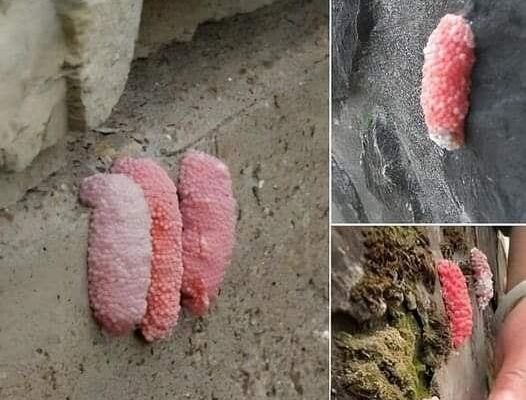If you spot small, bright pink eggs on walls or plants, beware—they may indicate an apple snail invasion. These snails, native to South America, are highly invasive and pose a threat to ecosystems.
They lay clusters of pink eggs containing hundreds of future snails. Once hatched, apple snails spread quickly, damaging aquatic plants, crops, and local wildlife.
They are especially harmful in rice paddies, leading to significant crop and economic losses.
Apple snails reproduce rapidly and adapt easily, ranking among the world’s top 100 invasive species. They have already spread across North America, Europe, and Asia, disrupting ecosystems and agriculture. Their feeding habits destroy vegetation, harm water quality, and impact food sources for other animals.
If you find pink egg clusters, act fast: scrape them off and alert local authorities. Although research into biological controls is ongoing, manual removal and public awareness are key in managing their spread. Staying vigilant helps protect gardens and natural habitats from the damage caused by apple snails.



